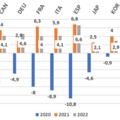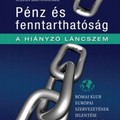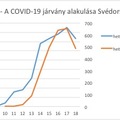A preliminary assessment on foreign investment screening in Hungary
In the past couple of years, Chinese companies have steadily increased their economic presence and expanded their investment portfolio in the Central and Eastern European region. While cooperation between CEE countries and China is still far from its full potency, the institutionalization of the relationship through the 16+1 framework and the continuing political support in the region for doing business with Chinese companies indicate that this tendency is likely to continue in the future. CEE countries, however, are facing a dilemma between encouraging and welcoming the flow of Chinese foreign direct investment, on the one hand, and safeguarding strategic sectors and industries of their national economies, on the other.
As of September 2017, only 12 out of the 28 member states (Austria, Denmark, Finland, France, Germany, Italy, Latvia, Lithuania, Poland, Portugal, Spain and the UK), had some kind of a national investment screening mechanism in place for the sake of balancing between these two considerations. Since these national screening mechanisms reflect unique characteristics and vary significantly in scope and design, the European Commission has put forward a proposal to regulate the matter more systematically by establishing a collective screening framework, providing oversight for investment projects or programs involving the community’s interest. While official documents do not single out Chinese companies to explain the need for such protective regulation, the EU’s concerns and suspicions about Chinese investors nonetheless provide one important rationale for an effective investment screening mechanism.
On 2 October 2018, the Hungarian government passed a bill in parliament to establish a national investment screening procedure, which is set to come into effect 1 January 2019. Act LVII of 2018 “On the supervision of foreign investments violating the national security interests of Hungary” introduces a mandatory review process and conditions the acquisition of stakes by foreign entities in strategically sensitive businesses upon prior approval by the relevant minister designated in government decree.
The threshold at which the investment must be announced is 25% in the case of Hungarian companies and 10% in the case of publicly listed Hungarian companies. In addition, if an acquisition by a foreign entity were to result in dominant influence, as stipulated by the Hungarian civil code, the investment is likewise subject to the same procedure. The economic activities under the protection of the act cover the armaments and defence industry, the production of dual-use goods, the financial services industry and the banking sector, energy industry, the water utilities, as well as information technology. Upon receiving the notification of the foreign entity, the designated minister has 60 days to conduct an investigation to identify the ownership structure and assess the effects and implications of the planned investment. If extraordinary circumstances require, the 60-day period can be extended by an additional 60 days, potentially lengthening the review process to 120 days. Ultimately, the minister decides on the basis of whether or not the investment infringes upon Hungary’s security interests. In the case of a rejection, the foreign entity can appeal against it at the Budapest-Capital Regional Court. However, the grounds upon which the appeal can be made are strictly procedural, and the court cannot overturn the decision but can only require the minister to conduct the review process anew. A failure to notify the minister in advance of the planned investment and to comply with the legal requirements of the screening mechanism can lead to a penalty of HUF 10 million, to be paid by the foreign entity.
While the exact consequences of the act would be difficult to foresee, some implications are clear. Hungary is at the forefront of expanding and strengthening cooperation with China in the CEE region, yet foreign direct investment from Chinese companies is a modest 2.4 per cent of total FDI stock in Hungary. EU partners still dominate the Hungarian economy, with German investments amounting to roughly 25 per cent. Only last week, the meeting between the Prime Ministers of Japan and the V4 countries made clear that cultivating good relations with China is a priority in Hungarian foreign policy. In something of a diplomatic fiasco, the Hungarian side was unwilling to support a joint statement with critical references to China’s behaviour in the South China Sea, leading instead to a more neutrally phrased version of the document that the Japanese side decided not to sign. The diplomatic charm offensive towards Beijing means that the new Hungarian screening mechanism is arguably not meant to discourage Chinese companies from investing in the country.
In recent years, the Hungarian government has also embraced a protectionist and interventionist market attitude with the purpose of reducing foreign ownership in crucial economic sectors. Two notable examples are the banking sector, where allegedly excessive profits warranted the government’s intervention, and the restrictions imposed upon the foreign purchasing of Hungarian farmland. The act on the supervision of foreign investments makes it possible for the government to expand its discretionary power over other areas of strategic significance. The review process conducted at the ministerial level means that the decision will be influenced by high political considerations, whereby factors other than national security are expected to affect the outcome.
A Hungarian observer pointed out that the lack of transparency and a clear definition of what constitutes an inviolable security interest for Hungary also expose the process to political preferences of the government. Ironically, even if shady ownership chains of foreign companies are often used to explain the need for a national screening mechanism, the very process by which they are disentangled and revealed does not promise to be any more transparent. In all fairness, however, how exactly the process will be carried out in practice remains to be seen. The related decrees will only be adopted by the government later, giving further specification to the screening process and potentially shedding more light on some of the details that are not yet known. It is also noteworthy that certain activities enumerated in the act have for long already been tied to prior approval, even if only at the level of the relevant national regulator rather than the minister.
The Hungarian act also differs from the European Commission’s proposal in a few important ways. The proposal emphasizes transparency, non-discrimination and predictability as three key principles underlying the screening process. As much as the screening mechanism is intended to protect key economic sectors, they should also alleviate fears of foreign investors that the EU is no longer open for business. Furthermore, the proposal complements mere security considerations by adding a reference to public order, expanding the grounds upon which a particular investment plan has to be screened. While the EU prides upon being one of the „most open investment regimes”, third countries also often do not reciprocate by providing similar access to European investors. This state of affairs is clearly detrimental to the European Union, so the proposal appears to be a warning and an intervention against such unfair market access practices.
The need for an EU level screening process also comes from the realization that European companies in technologically advanced businesses constitute the primary targets of Chinese investors. The fear is that the intellectual property they acquire through an acquisition may not only be abused at home and beyond but it contributes to China’s growing technological superiority. This explains why the EU’s proposal goes beyond conventional security considerations. Since few Hungarian firms apply sensitive and high technologies, the Hungarian economy is less exposed to foreign predators in this regard, explaining the absence of the protection of intellectual property rights and patents in the act. The subtle anti-Chinese sentiment underpinning the need for an EU level regulation is also unlikely to have resonated with Hungarian legislators. Therefore, they adopted something to comply with the regulatory mainstream in Europe, even though the protection against intellectual property theft, one of the primary reasons across the continent for this kind of regulation, barely comes across from the text. Overall, while Hungarian lawmakers emphasized compatibility with European values and referred to other member state practices as examples, domestic considerations must have played a key role as well. As a result, it would be difficult, based on the information currently available, to explain the adoption of the bill with one underlying cause.
While the Hungarian act does not concern itself with these considerations, it should be kept in mind that the screening mechanism at the level of the EU would work in tandem with the member states. The EU would essentially rely on member state reports about the outcome of a particular screening process, and the contribution of other member states and the Commission would be limited to issuing comments and opinions about the process. Ultimately, the decision about giving the green light to a particular project would still reside in the capital of the member state where the investment is planned. To be fair, even though the proposal was approved on 28 May 2018 by the EP’s International Trade Committee, it has yet to take its final shape and therefore remains subject to changes. To our knowledge, the Hungarian government has yet to adopt an official position with regards to the EU’s proposal.
In summary, the Hungarian act is part of a broader European tendency in which the protection of sensitive industries and sectors appears to warrant a specific legal instrument in the form of investment screening. Making sure that much needed foreign direct investment is not scared away, the Hungarian government will have to walk a fine line between prioritizing security considerations or those of the country’s economic and financial needs. The adoption of the act on the supervision of foreign investments is an important first step, even if the review process it establishes may suffer from a number of shortcomings. The lack of transparency, the role of the minister as chief arbiter, and the absence of criteria for interpreting national security interests, not to mention the potential loopholes yet to be discovered, all point in the direction of a highly politicized process whereby larger political and diplomatic considerations may overwhelm other concerns. On the other hand, the Hungarian government’s pro-Chinese foreign policy as well as the Eastern Opening agenda create the impression that the act itself was not adopted to counter or restrain China’s growing economic footprint in the CEE region. Therefore, the Hungarian act may prove to be an exception to the growing sentiment in Europe that the single biggest threat to our most precious businesses comes from China. Ultimately, however, a more accurate analysis will have to wait until the law and the related decrees come into force next year.
Tamás Peragovics
This text was written in the framework of the project "Comparative analysis of the approach to China: V4+ and One Belt One Road" implemented by IWE (Hungary) in cooperation with PSSI (Czech Republic), IAS (Slovakia), BFPE (Serbia), CIR (Poland), and supported by the International Visgerad Fund (IVF).








